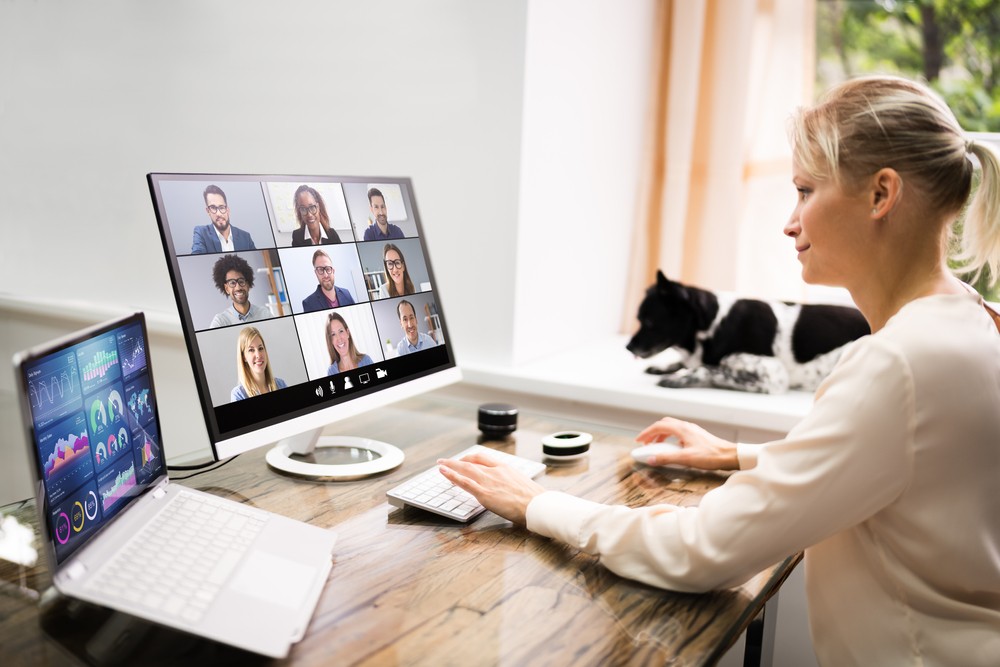Recent history has changed the way we work and both business leaders and the workforce seem to agree that there is no going back. Their prediction is that hybrid working will become the most pervasive form of work (36%), closely followed by office working (34%) and then fully remote working (29%).
For business leaders, the rapid change to remote working during the pandemic has opened their eyes to the opportunities. For employees, the freedom to choose how they work has also become important with 87% saying remote working was an important aspect of their future employment. And it’s not all about money. Research conducted by PWC discovered people want a fulfilling job (69%), want to truly be themselves at work (66%) and nearly half (47%) prioritised being able to choose where they work.
But this increased flexibility is no longer a nice-to-have, but a necessity for many. The Great Resignation is an economic trend impacting businesses worldwide. For example, resignations across the US are hitting record highs with an average of 4m+ people choosing to leave their employment, every month since April 2021. But it’s not limited solely to the US. The same research conducted by PWC across 44 countries revealed one in five were likely to change job in the next year.
The challenges of the hybrid work environment.
It’s clear that businesses wanting to retain and attract the best talent in the future will need to ensure that employees can work effectively at home, in the office, or on the move. But for businesses, maintaining communications, fostering innovation, and ensuring company culture is extended across a distributed workforce is a new challenge, and one that can only be overcome by finding new ways for people to collaborate. Effective collaboration is a foundation for success in business. According to recent research companies that promote collaborative working are five times as likely to be performing at a high level. But with the workforce now split roughly into thirds - working remotely, in the office and hybrid between the two – the world of work has changed.
So, how do we ensure that collaboration can still be productive in this new world? Now, more than ever, we are reliant on technology and digital workspaces to help bring us together. Technology that must be able to make the experience of all users feel real, fast, intuitive, easy on the eyes and simple to use.
The frustrations of attending a meeting remotely and not being able to see or hear the other participants clearly is something we can all agree is a collaborative disaster. You feel like an outsider. It’s just not as good or productive as a face-to-face meeting.
The Technology enabling flexible and effective hybrid working
However, the latest generation video conferencing solutions are making hybrid meetings more real than ever before. 360-degree camera technology can allow attendees to configure their view to see people as they wish. Face and voice detection and tracking technology can ensure every speaker is clearly seen and heard. And the devices are lightweight and simple to set-up, with often just a single USB-C cable to connect to a laptop.
Another important area of collaboration is presenting. We are all busy, with too much to do and not enough time to do it in. So, when people do come together, they need to be able to share content and ideas quickly.
The latest generation presentation systems are designed for people to be able to bring their own device, connect a dongle and click a button to present. With no cables, or software to download and no fuss, reducing the irritation of attending a meeting and having to wait while everyone gets set-up. With these systems enabling up to 32 devices to connect at the same time, with multiple simultaneous presenters – these systems help to unleash the creativity of the workforce, in a timely manner.
But it is all well and good having the latest collaboration solutions if they are not integrating seamlessly. If your video conferencing, presentation systems, projectors and displays aren’t designed to work together, the frustrations the individual system has been implemented to solve are merely redistributed, impacting collaboration, creativity and ultimately your organisational output.
For businesses battling to attract and keep the best talent, technology is now more vital than ever to making your current and future employees feel valued – wherever they may be working. Here at Panasonic Connect, we understand there isn’t a one-size-fits-all solution. Every organisation will require slightly different requirements, but generally we recommend looking for technology that is mobile and intuitive to set-up and use, that uses voice and movement tracking to keep the experience as real as possible and uses the latest mic technology to block background noise.
This will enable the workplace of today to feel wholly connected, allowing for innovation, productivity, and creativity to remain unaffected, regardless of where your employees are.




